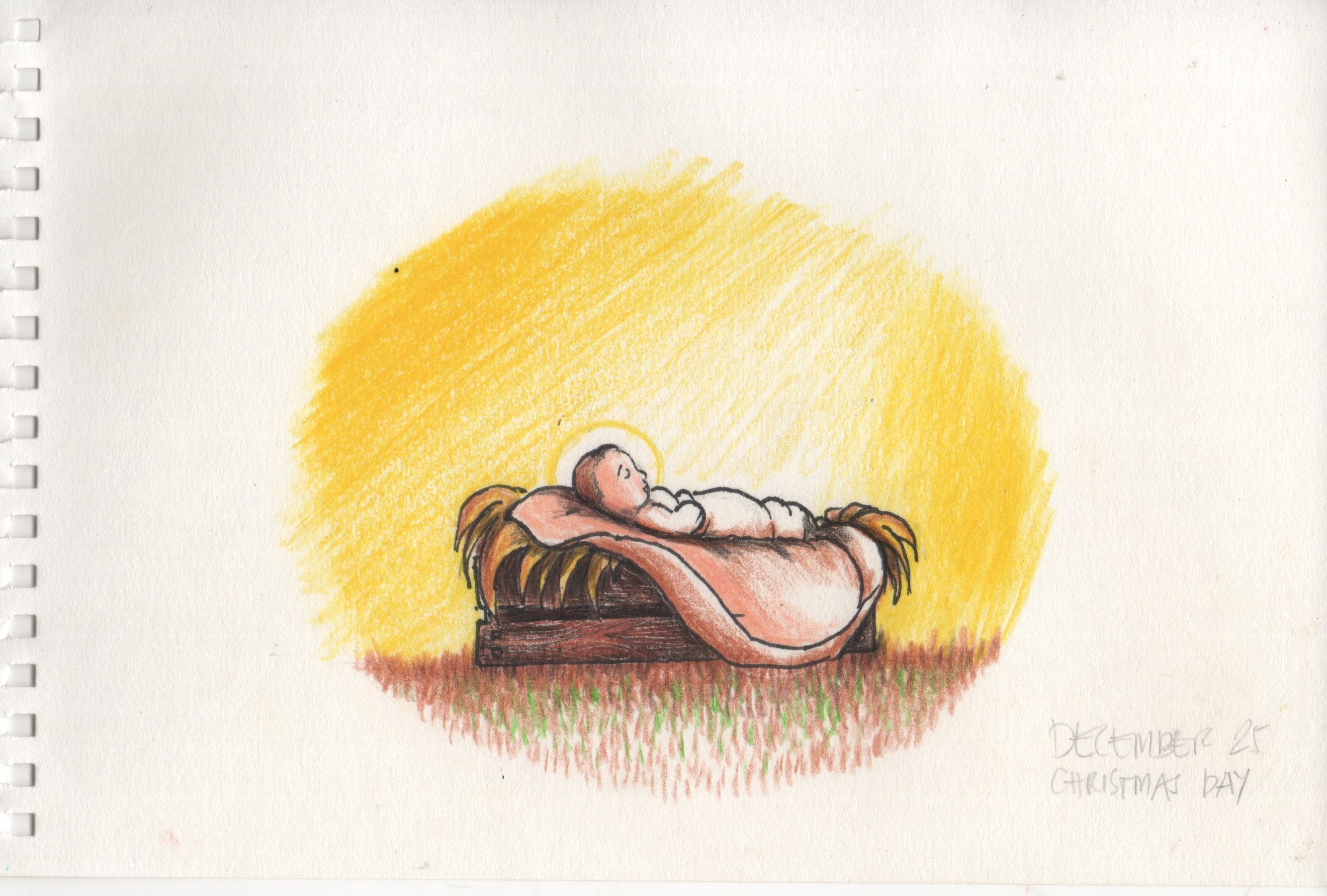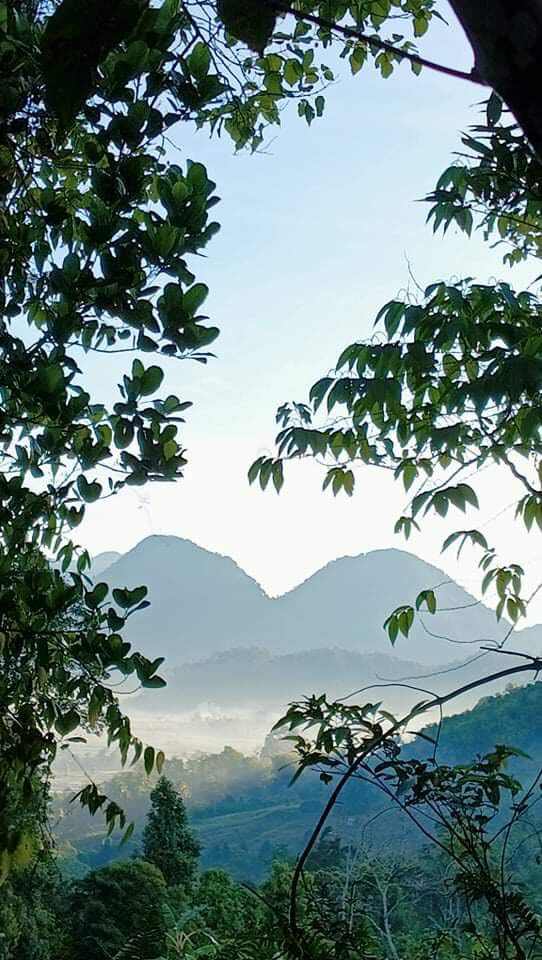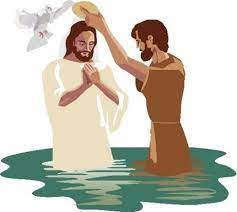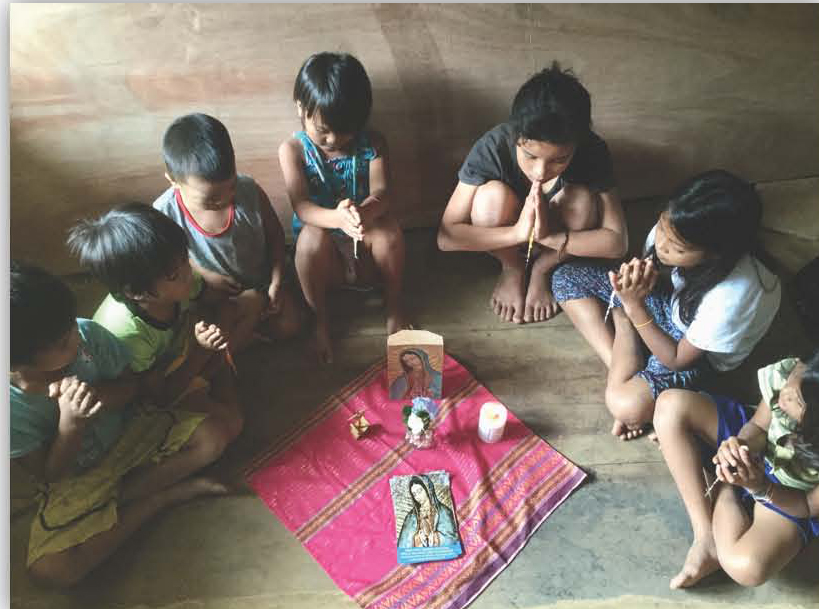
“Let the little children come to me. Do not shut them off. The reign of God belongs to such as these. Trust me when I tell that whoever does not accept the kingdom of God as a child will not enter into it.” (Luke 8:16 – 17)
They came to visit me one early morning with wild flowers freshly picked along the wayside to our still unfinished project house. I was delighted to see them again after spending a busy week down in the city of Pagadian. They shyly smiled at me happy to see me back. I barely hear them talk but their presence was more than enough for me to feel how blessed I was to be with them again. Yes, these new friends of mine are the poor children in this remote village of Nanga Nangan. They were one of the first to visit me and the very first to use the prayer room that was still bare, still an empty space. Their eyes gleamed with joy as I handed each one a small rosary with their preferred color which I promised to give them when I come back. I told them that it was a gift from our Blessed Mother because she loves them in a special way. Again, they smiled at me with gratitude as they happily clutched their new rosary in their little hands.
Time just flew by as they intensely listened to my Bible stories and later enjoyed reading, coloring and playing together before we finally ended up with a fervent prayer asking Our Blessed Mother to intercede for us during these difficult and uncertain times of global pandemic. We served them some crackers spread with homemade Nangka jam along with a cold glass of calamansi juice which they savoured before saying goodbye. Moments later, after they were all gone, one of the boys named Ceejay, came back almost in tears telling me that his rosary fell somewhere by the stream and lost it. I felt his sadness and promised to give him a new one next time I return from the city. Somehow, he felt consoled and went home. I looked forward to see him again but it’s been more than a month since I last saw him. His new rosary I still sadly keep with me in the hope that he will come back someday in the near future. But I was told that he had gone to another mountain village with his relatives who lives there in the absence of his parents who have abandoned him and his younger sister Carmela and left in the custody of their grandmother who could no longer take good care of them.
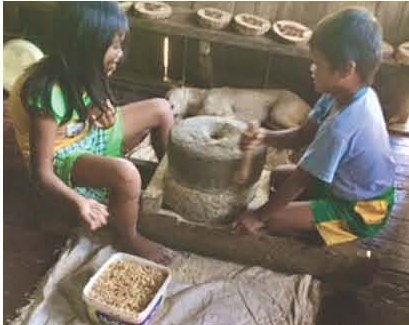
Truth to tell, these children for one reason or another have not returned.I waited for them and asked around for their whereabouts and learned that the older ones had to work in the corn field while the smaller ones were too young to walk on their own without accompaniment. Perhaps, they were also prohibited from coming because of their different Christian beliefs. I felt downhearted and I realized that the children of the poor are endangered and marginalized for they have no voice and can not decide for their own. Obedience is unquestionably what binds them to the adults responsible for their very existence where the struggle to survive is more familial and communal especially in the countryside. They are deprived of the normal childhood they so deserve simply because they have to grow up fast and become part of the labor force just so they could have food on their plates to eat for the day. I was touched when Carmela once candidly told her brother if they could just live with me as they were enjoying a bowl of hot champorado I prepared for them one rainy afternoon. How I wished so too! But I myself was simply an overstaying guest in my friends’ ancestral home because of the lockdown and did not have a place I could call my own at that time.
While children maybe treated more singularly nowadays unlike years past, and yet, the irony remains for they continue to find themselves at the bottom in the order of priorities in the community, group or extended family. Perhaps, it is because our actions or the absence of it seem to betray our words and promises. The book of Megan McKenna, Not Counting Women and Children written more than two decades ago (1994) still holds true even until today. She said that domestic violence, abuse of children, malnutrition, homelessness and lack of education and health care for children are high and growing by leaps and bounds yearly so much so that just being born and staying alive is already a problem. Statistics quoted at that time says that one out of every five lives in poverty, and among minorities, that figure is higher, much higher.1
This brings me to conclude that the reality of childhood then and now, here and across the globe but most especially in the third world and developing countries is one of marginalization, vulnerability, dependence on support for their basic needs along with the need for unconditional love that parents, families and society as a whole can and must provide so that future generations can thrive and not just merely survive in this already very difficult and challenging period of humanity’s history. To listen to the cry of the poor therefore, is to listen to the cry of the children because they are ones who suffer most the consequences of the adults’ poor decisions and actions or failure to act wisely on their behalf.
These children can either fall prey to the vicious cycle of hatred, violence and apathy that can harden their hearts with anger and resentment in their growing up years whereby only mercy, forgiveness and reconciliation can free them from this kind of inner slavery or they can become potential humanizing agents in our world that is in dire need of a total change of heart and a social transformation now more than ever before.
In the light of the ongoing global pandemic caused by COVID-19, we have all of a sudden become acutely aware of our common humanity, and how vulnerable we all are in the face of illness and death with just a single microscopic virus that can take our breath away even before we can actually come to grips with the painful truth of our finite earthly existence, that life is short and we are just but mere travellers in this journey back towards our final destination, our heavenly Home.
Hence, the reality of our God becoming human just like us, born as a little babe “lying in a manger, wrapped in swaddling clothes” (Lk. 2:12, 16) very much in need of a motherly care and a father’s protection where he can grow up and be nurtured in a safe environment continues to challenge our own mindsets and values in life by the way our Lord Jesus Christ chose to reveal His greatness to us, that is, of an innocent child who throughout his earthly life constantly prayed to God, his Abba Father. And even humbly subjected himself to the parental care of Mary and Joseph during the hidden years as a growing child. “He went down with them then and came to Nazareth and lived under their authority.” (Lk. 2:31)
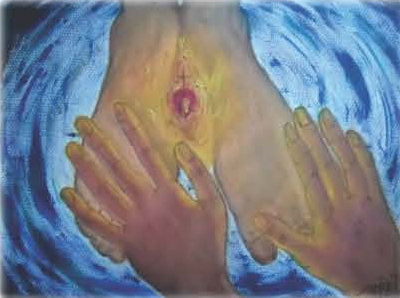
The call to become like little children imbibing their attitudes of humility, simplicity, transparency and truthfulness is not an easy task because it runs counter culture to our worldly ambitions of an upward mobility in life where power, pleasure and prestige is the name of the game. For to opt for a downward movement is a sign of weakness, failure and rejection according to the standards of society. It is a call to become virtually powerless, without a voice nor privilege, without any guarantee or assurance of a bright and secure future ahead more so if one belongs to a particular economic class, race, culture or indigenous group. This call to be a child implies readiness to serve others in the same manner that the Lord Jesus stooped low in order to be the servant of all. He bent before the disciples as he washed their tired and dirty feet. (Jn. 13:1-16) He bent to the ground to where the woman caught in adultery about to be stoned to death, not to condemn her but to forgive her.(Jn. 7:53-8:11). He became small among the little ones, embracing the children, blessing them and placing his hands on them. (Mk. 10:16). He thus made himself poorer in order that the poor might be less poor.
The gospel of Matthew clearly presents to us how Jesus valued the children in his kingdom: “Just then the disciples came up to Jesus with the question, “Who is of greatest importance in the kingdom of God?” He called a little child over and stood them in their midst and said: “I assure you, unless you change and become like little children, you will not enter the kingdom of God. Whoever makes himself lowly, becoming like this child, is of greatest importance in that heavenly reign.” (Mat. 18:4).
We wonder how the lowliest on earth can become the greatest in God’s kingdom. Megan McKenna aptly highlights this paradox by saying that Jesus singles out the most unlikely, the most forgotten and ignored of people, the most useless in a society that looks upon abilities and contributions to society as critical and says that unless we become like this, we will not enter his kingdom. Thus, God’s image is not of an almighty all powerful God, rather an unassuming God of the poor and the downcast. She explains furthermore that the upside-down wisdom of the kingdom of God is distressing and can be very disconcerting to many of us who find ourselves securely in the ninety nine that God has left to go of searching for the lost sheep. If we want to be the greatest in the kingdom, the most holy, the most like Jesus, true disciples, then our way in the world is the care of the lost sheep, the journey into the wilderness, outside the structures of society in order to make sure that the least are well taken care of and provided for. It is a way of holiness that serves, searches out the lost and leaves behind those who are at ease.
McKenna’s prophetic words of wisdom have given me a renewed sense of mission and commitment to accompany the Catholic Subanen children whom I met face to face for the first time one early Sunday morning on my way to our community chapel for the Sunday’s liturgical services. They were seated shyly outside waiting for our katilingbanon to begin. I could have walked straight past them as I needed to prepare my reflections for the Gospel reading in the absence of a priest. Somehow, I could not help but stop, surprised to see how many they were and so I decided to befriend each one of them by asking for their names and a few other questions. They timidly answered me, happy that they were noticed and given undivided attention. Needless to say, I was so moved with pity for them because they were like little sheep without a shepherd. I knew right there and then that I had to reach out to them. These children have been waiting for a long time wanting to be found, taken in and taken cared of. They have finally been found for I have discovered the face of a lowly God hidden behind their smiles and laughters. They are God’s little ones, beloved and most favored children in God’s kingdom.
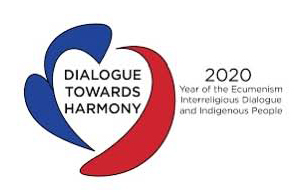
On hindsight, I realized that God’s angels have brought me here and locked me down in this very remote part of southern Philippines for a reason. He has entrusted me with the mission of evangelization and pastoral care of the Christian community and among the Subanen indigenous peoples. And this renewed mission and engagement with the IPs resonates with this year 2020’s celebration being the Year of Ecumenism, Inter-religious Dialogue and Indigenous Peoples focusing on the theme “Dialogue towards Harmony”. The ultimate purpose of dialogue is for the whole humanity to live in harmony and fraternal love. This fraternal love will ensure peace in our land which seems to be elusive in reality. This call to live in harmony asks us to love one another concretely. It calls us to respect each other with all our differences.2 The Subanen and Visayan children have shown that it is possible to attain unity and harmony for they imbue the values of openness, unity, gentleness and compassion that oftentimes we adults find difficult to live out.
Likewise, I have felt the urgent call to respond in a concrete manner to the invitation of Pope Francis, in his Encyclical Laudato Sí, On the Care for Our Common Home. More so as we dedicate this year 2020 as a Jubilee Year of the Earth. Hence, I am all the more drawn to care for our earth mother and to develop ways of sustainability, to bring about restorative justice and ensure food security during these trying times. As our earth suffers, our indigenous brothers and sisters remind us that we have a shared responsibility in the care of our common home for they know how to dialogue with the earth. They know the art of living well in harmony with the earth.3
I am blessed to find myself among these children who are hungry for God and are so full of eagerness and enthusiasm to learn more about their faith and to build a new community, “a new heavens and a new earth” together as one. They are full of imagination and creativity born of the Spirit that inspires me to give the best of myself to them despite my own limitations and imperfections.
As I end this reflection, the lyrics of an old song “Bless the Beasts and the Children” gently stirs my heart with a sense of urgency and commitment to carry on in the second half of my life as a consecrated woman at the service of God’s people especially the little ones…
Bless the beasts and the children.
For in this world they have no voice,
They have no choice.
Bless the beasts and the children,
For the world can never be
The world they see.
Light their way
when the darkness surrounds them;
Give them love, let it shine all around them.
Bless the beasts and the children,
Give them shelter from a storm;
Keep them safe; Keep them warm…
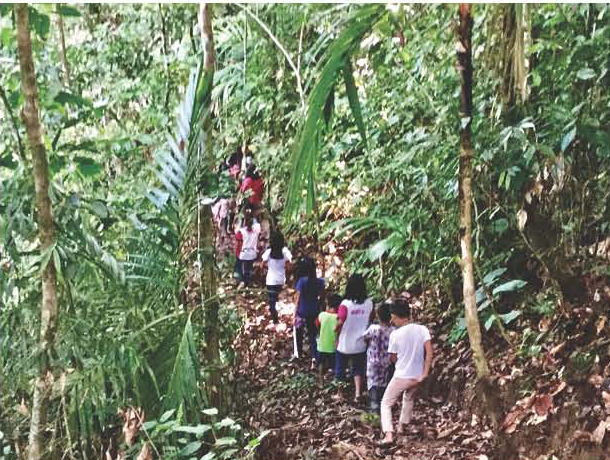
May we therefore join hands as God’s children in showing our support and solidarity by giving more special attention to these people, often forgotten and without the prospect of a serene future, and to identify new paths of evangelization that enables the growth of the face of the indigenous peoples in the Church, that is, “a Church that expresses fully the faith in her culture, in her own identity.4 May the guiding voice of the Spirit, the Ruah open our eyes to see God’s truth, beauty and goodness hidden in the small and ordinary things of everyday. And may the children of a lowly God and the child in us be reborn to show us the way as we blaze new and untrodden paths towards the fullness of God’s kingdom during this extraordinarily challenging period our world is going through .
Marjorie J, Guingona, SAC
September 17, 2020
Nanga Nangan, Tigbao
Zamboanga del Sur, 7043
___________________________________________
1 McKenna, Megan, Not Counting Women and Children, Neglected Stories from the Bible, Orbis Books,Maryknoll, NY, 1994, pp. 67-68
2 Valles, D.D., Rómulo G. CBCP Catholic Bishops Conference of the Philippines, 1 December 2019, cbcplaiko.org
3 Seminar on “Indigenous Peoples, custodians of nature: Pope Francis’ Encyclical Laudato Sí and the Sustainable Development Goals” 29/03/2019 p. 1, press.vatican.va
4 Ibid p. 3




